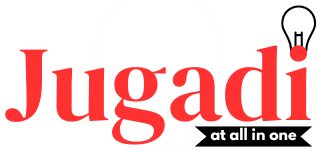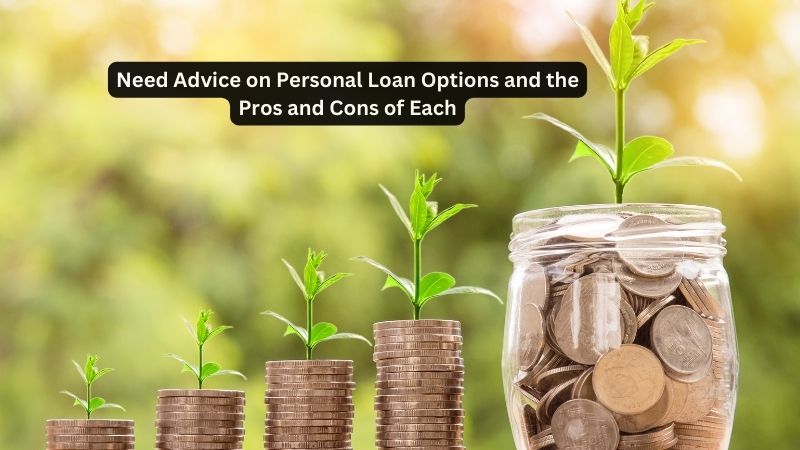Personal loans are a versatile financial tool used for a variety of purposes, such as consolidating debt, financing home improvements, covering medical expenses, or even funding large purchases. With so many different personal loan options available, it can be difficult to decide which type is best for your specific financial situation. Each type of loan comes with its own set of advantages and disadvantages.
In this article, we will explore various personal loan options, the pros and cons of each, and provide a comprehensive comparison table. We’ll also discuss what to look for when considering personal loans, including interest rates, loan terms, and credit score requirements.
Types of Personal Loan Options
There are several types of personal loans, each suited to different needs and borrower profiles. Understanding the types of loans available can help you make an informed decision. Below are the main types of personal loans:
1. Unsecured Personal Loans
- These loans are not backed by any collateral, meaning you don’t need to offer an asset like your home or car to secure the loan.
- Borrowers are assessed based on creditworthiness, income, and financial history.
2. Secured Personal Loans
- Secured loans require collateral (such as a vehicle, savings account, or property) to secure the loan.
- These loans typically offer lower interest rates because the lender’s risk is reduced.
3. Debt Consolidation Loans
- A debt consolidation loan is a type of personal loan used to pay off multiple debts, such as credit card balances or other loans.
- This simplifies your payments into a single monthly payment, ideally with a lower interest rate.
4. Co-Signed Loans
- A co-signed loan involves adding another person with good credit to the loan application. This can help those with poor or limited credit qualify for a loan.
- The co-signer is responsible for the loan if the borrower fails to make payments.
5. Payday Loans
- Payday loans are short-term loans designed to cover small emergency expenses and are typically due on your next payday.
- These loans often come with very high interest rates and fees.
6. Peer-to-Peer (P2P) Loans
- P2P lending platforms match borrowers with individual investors willing to fund loans.
- These loans can offer flexible terms and rates based on the borrower’s credit profile.
7. Credit Union Loans
- Credit unions often offer personal loans with lower interest rates than banks or online lenders, especially for members.
- You need to be a member of the credit union to access these loans.
8. Home Equity Loans/HELOCs
- A home equity loan or home equity line of credit (HELOC) allows you to borrow against the value of your home.
- These loans typically offer lower interest rates but put your home at risk if you fail to make payments.
Read also:- How Much Would a $5,000 Personal Loan Cost Per Month?
Pros and Cons of Different Personal Loans
Each loan type has its own advantages and disadvantages. Below is an in-depth look at the pros and cons of the most popular personal loan options:
1. Unsecured Personal Loans
- Pros:
- No collateral is required.
- Fast approval and funding.
- Fixed interest rates with predictable payments.
- Cons:
- Higher interest rates for borrowers with poor credit.
- Loan amounts may be limited based on creditworthiness.
2. Secured Personal Loans
- Pros:
- Lower interest rates compared to unsecured loans.
- Easier approval for borrowers with low credit scores.
- Cons:
- You risk losing the collateral if you default on the loan.
- Slower approval process due to asset verification.
3. Debt Consolidation Loans
- Pros:
- Simplifies multiple debts into one payment.
- Potentially lower interest rates than credit cards.
- Cons:
- You could end up paying more in interest if the loan term is long.
- Requires good credit to qualify for the best rates.
4. Co-Signed Loans
- Pros:
- Helps borrowers with poor credit qualify for loans.
- Co-signer may help secure a lower interest rate.
- Cons:
- Co-signer is liable if you default on the loan.
- Could strain personal relationships if payments aren’t made on time.
5. Payday Loans
- Pros:
- Quick and easy to obtain, with minimal requirements.
- Cons:
- Extremely high interest rates (often 300% APR or more).
- Short repayment terms can lead to a cycle of debt.
6. Peer-to-Peer Loans
- Pros:
- Flexible loan terms and competitive interest rates.
- May be easier to qualify for compared to traditional bank loans.
- Cons:
- Investors may charge higher rates for borrowers with poor credit.
- Approval can take longer than traditional loans.
7. Credit Union Loans
- Pros:
- Generally lower interest rates than traditional banks.
- Community-focused and member-friendly terms.
- Cons:
- Membership requirements may limit access.
- Loan approval may be slower than online lenders.
8. Home Equity Loans/HELOCs
- Pros:
- Lower interest rates due to the secured nature of the loan.
- Ability to borrow larger amounts based on home equity.
- Cons:
- Risk of foreclosure if you default.
- Slower approval process.
Read Also:- What’s the Best Option to Get a $15-20k Loan?
Key Factors to Consider When Choosing a Personal Loan
Before you decide on a personal loan, it’s important to evaluate several factors that will impact your overall borrowing experience. Here’s what you should consider:
- Interest Rates: Compare the interest rates offered by different lenders. Lower rates will save you money in the long run, but make sure you understand whether the rate is fixed or variable.
- Loan Terms: The length of time you have to repay the loan can affect both your monthly payments and the total cost of the loan. Shorter terms lead to higher monthly payments but less total interest, while longer terms lower your payments but increase interest costs.
- Fees: Some loans come with fees, such as origination fees, prepayment penalties, or late fees. Be sure to understand the full cost of the loan, not just the interest rate.
- Credit Score Requirements: Your credit score plays a huge role in determining the interest rate and loan terms you qualify for. Check your credit score before applying to understand what rates you can expect.
- Collateral Requirements: If you’re considering a secured loan, think carefully about the risk of using your assets as collateral. Missing payments could lead to losing your car, savings, or even your home.
Comparison Table of Personal Loan Options
| Loan Type | Interest Rates | Loan Term | Best For | Pros | Cons |
|---|---|---|---|---|---|
| Unsecured Loan | 5.99% – 36% | 12 – 60 months | General borrowing | No collateral, fast approval | Higher rates for poor credit |
| Secured Loan | 3% – 18% | 12 – 60 months | Borrowers with collateral | Lower rates, easier approval | Risk of losing collateral |
| Debt Consolidation | 6% – 25% | 12 – 60 months | Paying off high-interest debt | Simplifies payments, lower interest | This could lead to higher interest if the term is long |
| Co-Signed Loan | 5% – 25% | 12 – 60 months | Borrowers with poor credit | Helps qualify, lower rates possible | Co-signer is liable for missed payments |
| Payday Loan | 300% or more | 2 weeks – 1 month | Short-term, emergency expenses | Easy to get, quick cash | High interest, short repayment period |
| P2P Loan | 6% – 36% | 12 – 60 months | Borrowers with mixed credit | Flexible terms, competitive rates | Longer approval times |
| Credit Union Loan | 5% – 18% | 12 – 60 months | Members of credit unions | Lower rates, community focus | Membership requirements |
| Home Equity Loan | 4% – 10% | 5 – 15 years | Homeowners with equity | Lower rates, larger loan amounts | Risk of losing home |
Frequently Asked Questions (FAQs)
- What’s the best personal loan option for people with bad credit?
- If you have bad credit, consider a secured personal loan or a co-signed loan. These options can help you qualify for better interest rates and terms than unsecured loans for poor credit.
- How can I get a personal loan with a lower interest rate?
- To secure a lower interest rate, improve your credit score, shop around for the best loan offers, and consider offering collateral if possible.
- Is it better to get a personal loan from a bank, credit union, or online lender?
- It depends on your needs. Credit unions often offer lower rates to members, while online lenders can provide faster approval and more flexible terms. Banks offer more traditional loan options.
- Are there any risks associated with personal loans?
- Yes, especially with secured loans where you risk losing collateral if you default. Payday loans also pose risks due to their extremely high interest rates and short repayment terms.
- Can I pay off my loan early?
- Many lenders allow early repayment, but some may charge a prepayment penalty. Always check the terms before agreeing to a loan.
Conclusion
When deciding on a personal loan, it’s essential to weigh the pros and cons of each option. Whether you’re looking for a quick payday loan to cover an emergency expense or a long-term secured loan for a home improvement project, understanding your choices will help you make an informed decision. Compare interest rates, loan terms, and fees across lenders to find the personal loan that best fits your financial needs.

